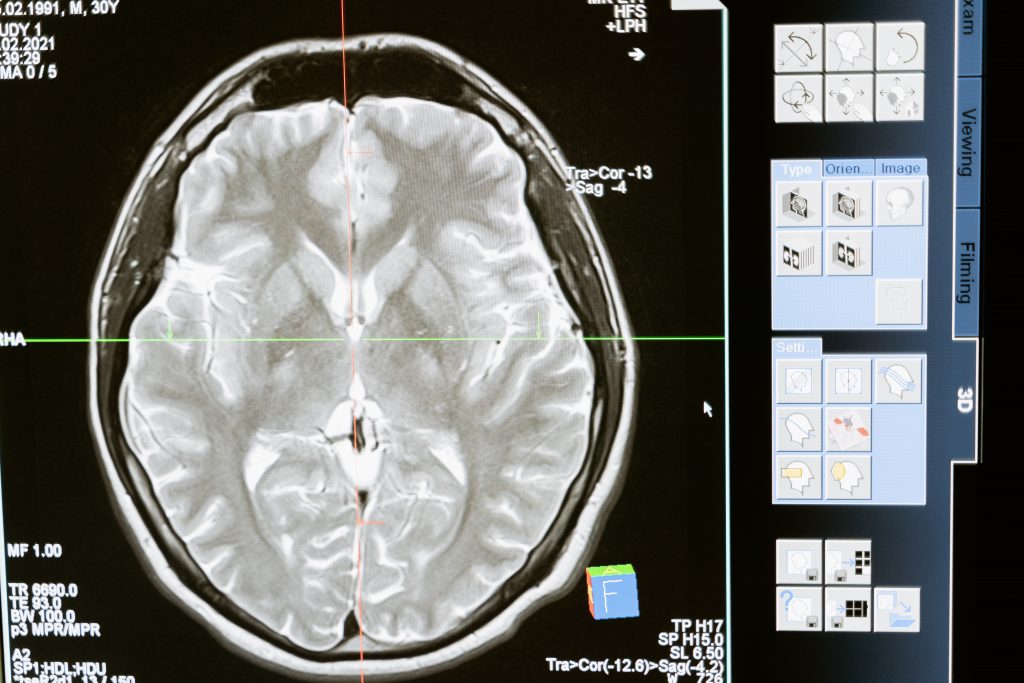Recovery from a Traumatic Brain Injury is usually a long and difficult process. In this article, we’ll discuss all the major recovery stages a TBI survivor will go through.
We will add tips for how to cope through the stages till you or your loved one gets to the last stage.

Let’s Go Into The Early Stages Of TBI Recovery
According to the Rancho Los Amigos Scale, the stages of recovery from TBI are divided into ten. However, not all TBI survivors will experience these stages similarly, and each survivor will recover at a different pace. Remember that it is important to consult a traumatic brain injury lawyer in Pasadena if you got injured at work or under questionable conditions. Getting the justice you need is also a huge part of recovery.
Let’s dive into the first four stages of recovery a TBI survivor may pass through during the first few weeks following their traumatic brain injury.
Stage 1. Coma
After a TBI, a survivor may remain in a coma for a while. Do not fret, and this is not always a negative sign. Coma is considered the first stage of the TBI recovery process because this is when the brain is allowed to begin to heal uninterruptedly. In this stage, there’s no response from survivors, and they need total assistance.
Usually, comas only last for a few weeks, after which survivors may proceed into the next recovery stage.
Stage 2. Vegetative State
In this stage, survivors are a bit responsive, but they still require total assistance. People usually mistake a vegetative state for a coma, but they are two different states of consciousness.
When in a vegetative state, patients may sometimes seem awake. Although they are not fully conscious, they may sometimes open and close their eyes, and they might even react to loud noises and pain.
These reactions are caused by autonomic responses of the brain, which shows that the brain is still intact and has even begun to heal.
Stage 3. Minimally Conscious State
This is the stage of recovery where survivors are minimally conscious. In the minimally conscious state, survivors may gain and lose consciousness. There’s more awareness in this stage compared to the vegetative state.
Doctors would usually prescribe medications to help stimulate the brain, which would help the patient regain consciousness. Patients still need total assistance in this state.
Stage 4. Post-Traumatic Amnesia (PTA)

This is the period after a patient awakens from unconsciousness; patients experience a severe level of amnesia.
They usually are unable to remember past events (retrograde amnesia) and unable to form new memories (anterograde amnesia). They cannot retain memories of day-to-day events. In this stage, the survivor may behave and talk unpredictably and aggressively. The reason for this is that a person who has just recovered from an unconscious state usually loses their inhibition.
Patients have progressed past the PTA if they can remember day-to-day activities. Doctors can then refer patients to a rehab facility or back home for further recovery.
The first four stages of recovery usually take a few months.
Later Stages Of Recovery From A Traumatic Brain Injury
Below are the later six stages of TBI recovery:
Stage 5. Confused/Inappropriate
In this stage, the recovering person struggles with their focus, and they are confused about their surroundings. They can communicate so much better than in the previous stages, but their responses would be inaccurate and would not make so much sense.
Stage 6. Confused/Appropriate
Now TBI survivors can follow commands and even hold short conversations. Although they still struggle with memory retention, they cannot quite focus well.
Stage 7. Automatic/Appropriate
If you or your loved ones have reached this stage, then you have a lot to be happy for. TBI survivors can keep to a schedule and complete routines by themselves.
They still have difficulty planning and initiating activities on their own, and they cannot live independently yet.
Stage 8. Purposeful/Appropriate
Here, the survivor has more self-awareness, and their memory would have improved greatly compared to the previous stages. They may still struggle with social interaction and response time and are troubled by unexpected events.
They can now live on their own but only require minimal support from others.
Stages 9 and 10. Purposeful/Modified Independent
In the last stages of recovery, survivors have essentially complete recovery and can now function independently. They can adjust to unexpected situations, plan, initiate new activities, and even handle multiple tasks.
Although their cognition is still not on the same level as many people, they have learned how to cope.
Sadly, not all TBI survivors will go through all ten recovery stages. Survivors who experienced severe TBI might not progress from the 7th or 8th stages or other stages depending on the severity of their injury. However, there are ways to help survivors recover fully from their Traumatic Brain Injury. We wish you success as you recover from your Traumatic Brain Injury.
